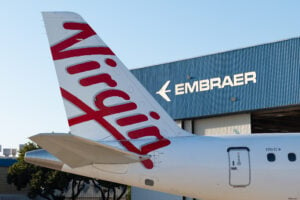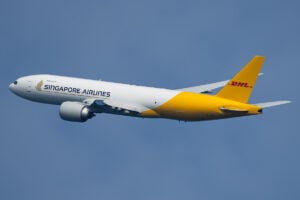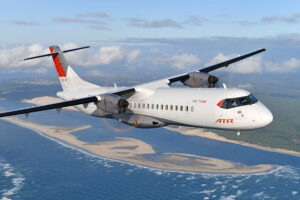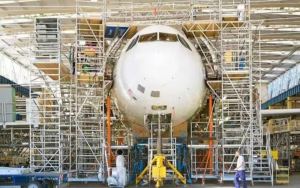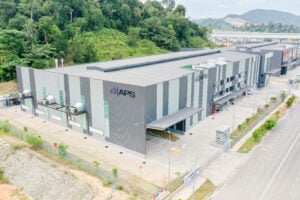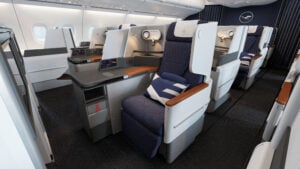GKN Aerospace has officially launched ASPIRE, a new £12 million (US$16.2 million) research and development initiative aimed at advancing composite wing and flap technologies. Having begun in May this year and running through to April 2028, the three-year UK-based programme will focus on developing and testing next-generation structural solutions for aircraft wings, supporting the future of lightweight and efficient single-aisle aircraft.
A central element of ASPIRE is the creation of three full-scale composite wingtip variants, each representing a different manufacturing approach and structural concept. These demonstrators will undergo rigorous structural testing to Ultimate Load, simulating real-world conditions to validate the technologies in a high-fidelity environment. The first wingtip variant is a bonded multi-part assembly in line with GKN’s existing design methodology. The second employs a quasi-isotropic, co-infused Resin Transfer Moulding (RTM) structure with automated fibre placement, digital twin integration, and self-heated JouleTool moulds from Pentaxia. The third variant pushes boundaries further, introducing non-standard fibre orientations, low-energy dry fibre forming and Smart RTM processes.
Innovative technologies under development include rapid tow sheared (RTS) laminates from iCOMAT, offering lightweight performance gains, and stitched ‘deltoid noodles’ made from recycled carbon fibre via Carbon ThreeSixty’s Lineat AFFT technique. These new methods are supported by analytical and modelling contributions from the University of Bath.
In addition to the wingtip demonstrators, ASPIRE will deliver a new composite flap concept. The flap will feature RTS skins, tailored fibre-placed brackets, low-energy out-of-autoclave curing, and press-cured ribs — with the goal of reaching Technology Readiness Level 6 for rib production. Building on GKN’s experience from the A350 flap programme, this initiative represents a significant step toward more sustainable, high-performance aircraft structures.




